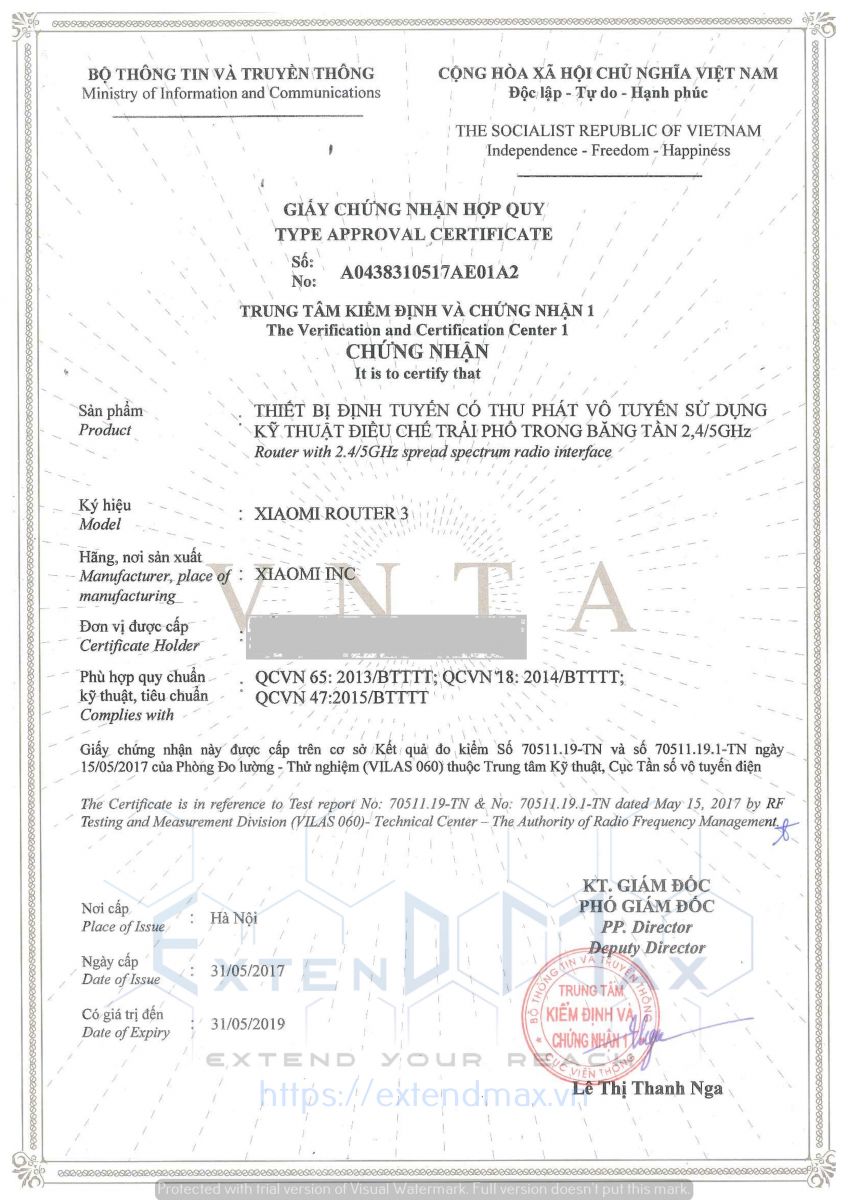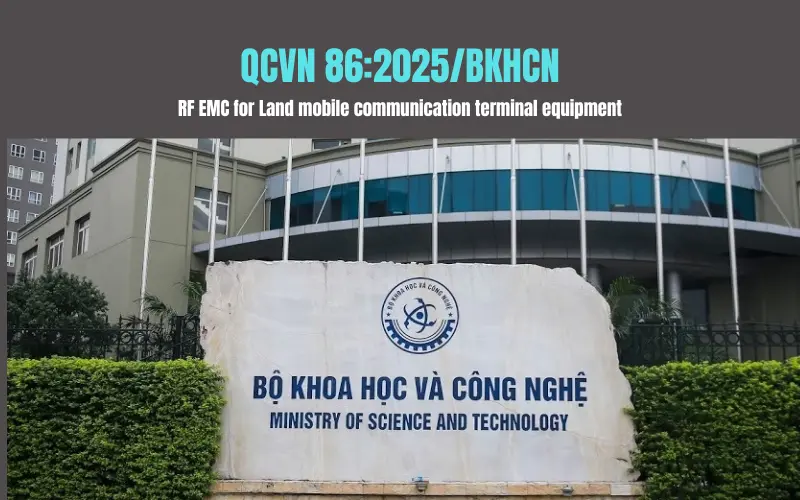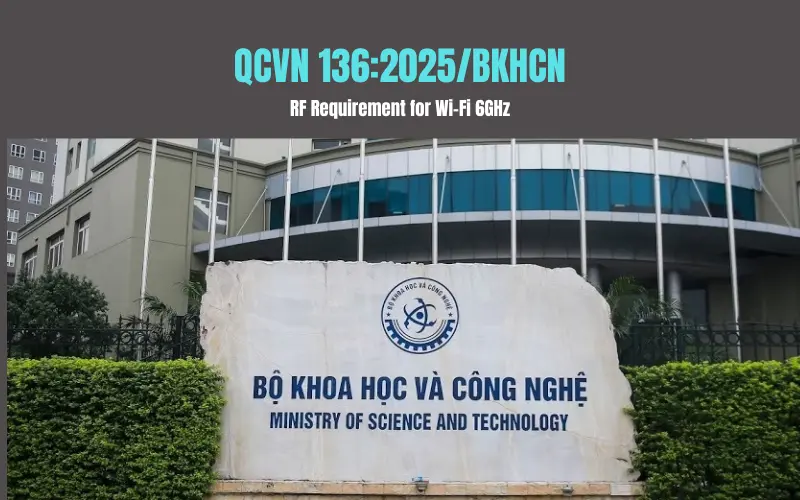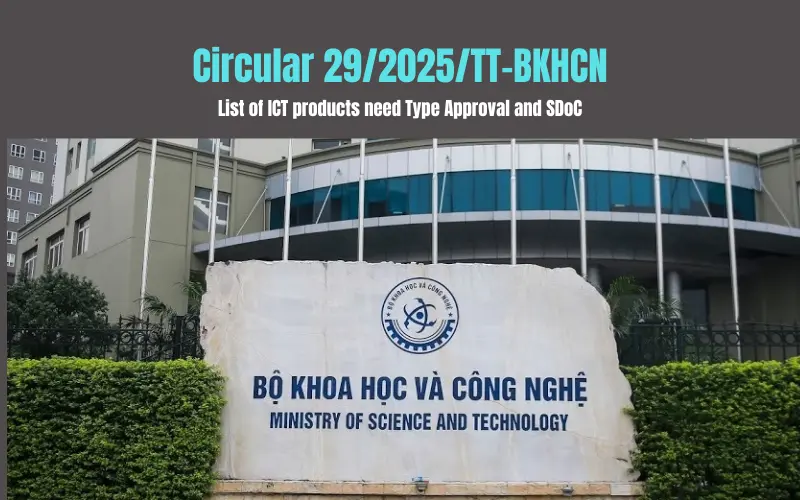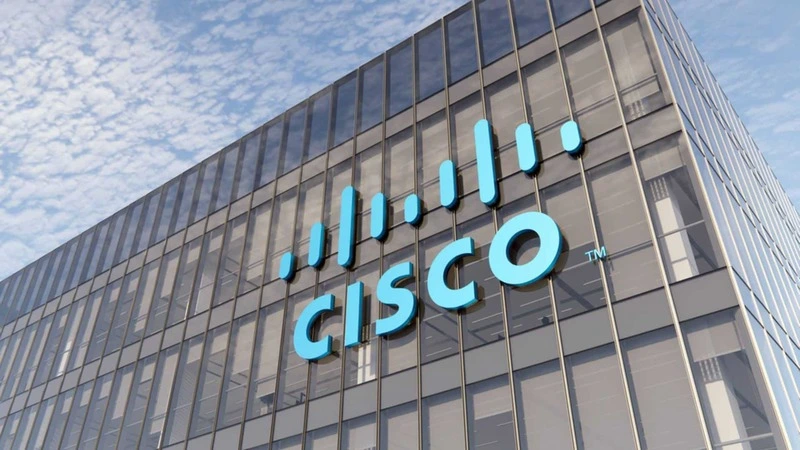EXTENDMAX – A router has the function of sending data packets between two networks or networks, or in other words, sending data from one destination to many destinations. Thanks to the router, devices connected to it such as desktop computers, tablets... can connect to the internet. The router can both receive and transmit radio waves to connect to a terminal device via a WiFi network (also known as a WiFi router or WiFi router), or connect via a 4G SIM (called a 4G wireless router, or 4G router), or can connect via a wired LAN network (wired router). Currently, popular router brands in the market include ASUS, Cisco, Aruba, Xtreme, Unifi, Xiaomi, Tenda, TP-Link... So what is a router? How to classify routers? What are the market access requirements to import router to Vietnam? What is the router's HS code? Is the router router a civil cryptographic product? is it subject to import or export license? Does the 4G WiFi product quality inspection registration for imported goods? Is it under mandatory scope for MIC ICT type approval? Let's learn all the import procedures applicable to the router in the following article of ExtendMax.

Wireless-Router
1. What is a Router? Router classification
A router is an electronic device that connects multiple computer networks together through a wireless (WiFi, 4G/5G) or wired (LAN) connection. As the name suggests, routing means defining a route. A router is a network device that is responsible for determining a route to forward data packets between computer networks or between devices in an internal computer network. . The transmitted data is sent in the form of a packet such as a file or email... The data packet after receiving the command will be forwarded from one router to another via wifi or LAN. Currently, routers range from simple to complex. Routers are often used for home or business internet connections, large organizations. Technically, a router is a Layer 3 network gateway device, which means it connects two or more networks and the router operates at the network layer of the TCP/IP model. Routers that want to broadcast WiFi or transmit signal packets (ie internet signals) for us to use must be attached to a modem. Modem (abbreviated from modulator and demodulator) is a device that modulates analog signals to encode digital data, and demodulates the carrier signal to decode digital signals. Today, many routers have built-in modem functionality, or vice versa.
Wired Router (LAN Router)
- Wired router connects directly to the computer through LAN cable. One connection port of the Router connects to the Modem to receive Internet data packets, and the other port connects to the computer to distribute Internet data packets.
- Wired routers often use firewalls (SPI) in the process of transferring data packets in the network for security purposes.
- When used in businesses or large organizations, wired routers are often service routers with high security functions. Service routers can be divided into different types such as Integrated Services Routers (ISRs) and Aggregation Services Routers (ASRs). Usually service routers have the feature of securing data packets with encryption or channel stream security, which is a civilian cryptographic product. For example, Cisco's ISR 4000 series routers.
Wireless router (WiFi or 4G/5G)
- The wireless router connects directly to the Modem through a cable to receive Internet data packets. Instead of transmitting data over a cable to a computer, a wireless router distributes data packets using one or more antennas to terminal devices such as phones, tablets, laptops, etc. .
- Wireless router establishes a wireless local area network (WiFi) with the same function as a WiFi access point device (Access Point) or WiFi transmitter
Virtual router
- Unlike a wired router or a wireless router, a virtual router acts as the default router for computers that share the same network.
- Virtual Router works by using Virtual Router Redundancy Protocol (VRRP), which will work when the primary Router fails or is disabled.
Core Router and Edge Router
- Core Router is a wired or wireless router that only distributes Internet data packets within the same network (intranet).
- In contrast, Edge Router is a wired or wireless router that distributes Internet data packets between one or more networks but does not distribute data packets within the same network.
2. Dossier of documents required for importing router
A set of import dossiers applicable to normal products (group 1 goods, not subject to special import policies or goods subject to specialized inspection) includes:
Commercial Invoice for goods purchased from abroad and with payment. Or Proforma Invoice, None-commercial invoice or shipping invoice for non-payment goods such as gifts, FOC goods, warranty goods not payable..
- Bill of lading (sea waybill) or Air Way Bill (house bill)
- Commercial Contract or Purchase Order or non-commercial consignment notice
- Certificate of Origin (COO) in case the importer wants to enjoy preferential import tax
- Packing List (itemizes the contents of each package (box, pallets, etc))
- Technical documentation of the product (to determine the function, HS code, applicable import policy)
- Other documents like certificate of quality, CE test reports (if any)
However, the above-mentioned documents only apply to ordinary products, no special import policies or goods subject to specialized inspection. Do routers require special licensing or specialized testing? Our answer is that wireless routers are subject to product quality inspection registration (PQIR), MIC ICT type approval, and certain LAN routers or wireless routers also need Civil cryptographic product trading license and CCP import license to enter Vietnam. Therefore, the set of import documents will be more than that of normal products.
3. MIC Regulations applied to wireless router.
Legal basis under MIC scope for ICT approval
WiFi or 4G/5G wireless routers having HS code of 85176299 is fallen under the list of group 2 goods of the Ministry of Information and Communications, must undergo state quality inspection procedures, certification of conformity and conformity announcement according to below list MIC legal documents:
→ Circular 02/2024/TT-BTTTT stipulating the list of products and goods subject to regulation conformity certification and/or regulation conformity announcement (list of group 2) goods within the scope of responsibility of the Ministry of Information and Communications
→ Circular 15/2018/TT-BTTTT and Decree 74/2018/ND-CP stipulating procedures for state quality inspection for imported goods
→ Circular 10/2020/TT-BTTTT stipulating the method of regulation conformity certification and announcement of conformity of products managed by the Ministry of Information and Communications
→ Circular 08/2021/TT-BTTTT stipulates the list of equipment exempted from frequency license to compare the operating frequency and transmit power of the device when the router is integrated with SRD function.
→ National technical regulations issued by the Vietnam MIC and applied to the product.
Legal basis under GCC and NACIS scope for cryptography
Wired or wireless router having civil cryptographic encryption functions like VPN and IPSec with HS codes 85176243, 85176299 is fallen in the category of civil cryptographic products (CCP) and must export and import under the license prescribed by the following legal documents:
Decree 58/2016/ND-CP detailing the trading of civil cryptographic products and services and the export and import of civil cryptographic products. Accordingly, in order to import routers with encryption function, enterprises must apply for a license to trade in civil cryptographic products and for a license to import civil cryptographic products.
Decree 53/2018/ND-CP amending and supplementing Decree No. 58/2016/ND-CP dated July 1, 2016 of the government detailing the trading of civil cryptographic products and services and export and import of civil cryptographic products
Circular 23/2022/TT-BQP promulgating national technical regulations on cryptographic specifications used in civil cryptographic products belonging to the group of IP security products using IPsec and TLS technologies. Accordingly, routers with civil cryptographic features belonging to the group of IP stream security products using IPsec and TLS technologies must be certified for civil cryptography standard.
Are there other regulations applicable for routers?
HS code 8517 is on the list of information technology products that must meet national technical regulations on permissible content limits of some hazardous chemicals in electrical and electronic products (RoHS).
Routers with HS code 8517 belong to the list of used information technology products banned from import specified in Circular 11/2018/TT-BTTTT of the Ministry of Information and Communications. Enterprises are only allowed to import 100% new products.
Although there is a security feature, it is not the main function. At the same time, the HS code of the router router such as 85176243, 85176299 is not within the scope of regulation of Circular 10/2022/TT-BTTTT of the Ministry of Information and Communications, so the router is not required to apply for a cybersecurity product trading license and import license.
4. Process and procedures for importing, getting Type Approval for router
Because there are many types of routers, there are wireless transceivers or only wired connections, some do not have civil cryptographic encryption, some have encryption. Therefore, we divide routers into the following 4 groups with corresponding specialized testing policies
→ Routers that do not have radio transceivers (wired routers), nor civil cryptographic features, can be imported as normal goods, without specialized inspection requirements. In some cases, when the customs authority has doubts that the product is a civil cryptographic product, the importer can request a written confirmation that the product is not a civil cryptographic product to facilitate customs clearance. .
→ Routers that do not have radio transceivers (wired routers) with civil cryptographic features will have to apply a specialized inspection policy for civil cryptographic products. The importer must have a license to trade in civil cryptographic products and a license to import civil cryptographic products to import. At this time, the import procedure of an encrypted router will be the same as that of a firewall device, or the import procedure of a Ethernet cryptographic switch.
→ Wireless routers with WiFi or 2G/3G/4G/5G transceivers but without civil cryptographic encryption, only need to apply import procedures with specialized inspection regulations of the Ministry of Information and Communications (apply for quality inspection registration, type approval certification, declaration of conformity). In this case, the procedure for importing a WiFi router will be the same as that of importing an Access Point, the procedure for importing a 4G/5G router is the same as that of importing a 4G/5G terminal device or a mobile phone.
→ Wireless routers that have WiFi or 2G/3G/4G/5G transceivers and also have the civil cryptographic encryption feature, will have to simultaneously apply import procedures with the specialized inspection regulations of the MIC and the Government Cipher Committee at the same time.
Market access requirements under MIC regulations
(Applicable for wireless router)
(1) Apply for product quality inspection registration process for router
(2) Submit the product quality inspection registration form to the customs authority
(3) Complete customs clearance for the router and taking the goods to the warehouse
(4) Product testing according to applicable technical regulations
(5) Apply for ICT Type approval for router at VNTA
(6) Submit Self-assessment Declaration of Conformity (SDoC) to VNTA
(7) Putting ICT conformity mark (ICT label) on the router or its packaging box before being circulated to the market
In case the importer already has the certificate of conformity and the necessary test results, the importer can carry out the SDoC process and submit Type Approval certificate to VNTA and complete the product quality inspection registration process at no time.
Market access requirements under GCC regulations
(Appliable for router having encryption function)
(1) Apply for CCP trading license for the products
(2) Apply for CCP import license for the products
(3) Start importing the products (after having license)
(4) Apply for CCP conformity certificate for VPN router
5. How to determine the QCVNs applicable to wireless router
The national technical regulation QCVN applicable to wireless router will be determined based on the radio transceiver technologies applied on the device. Depending on specifications, technologies and application radio frequency, a product model will have to be tested in accordance with National Technical Regulations respectively issued by the Ministry of Information and Communications listed below:
Radio frequency (RF) standards:
- QCVN 129:2021/BTTTT (RF for 5G NR NSA)
- QCVN 127:2021/BTTTT (RF for 5G NR SA)
- QCVN 117:2020/BTTTT (RF for 2G/3G/4G/LTE)
- QCVN 65:2021/BTTTT (RF for WiFi 5GHz)
- QCVN 54:2020/BTTTT (RF for WiFi 2.4GHz)
Radio frequency EMC standards:
- QCVN 18:2022/BTTTT (RF EMC for 5G NR NSA and SA) (applicable from 01 July 2023)
- QCVN 86:2019/BTTTT (RF EMC for 2G/3G/4G/LTE)
- QCVN 112:2017/BTTTT (RF EMC for WiFi)
Important notes:
→ Bluetooth and GPS are not required to be tested for Vietnam MIC certification
→ MIC renews list of products products and goods subjected to mandatory Type Approval certification and Declaration of Conformity annually. Please find most update regulation on our website.
6. Testing and in-country test laboratory designated by Vietnam MIC
For standards on RF radio transceivers and EMC compatibility, applicant can conduct testing and testing of equipment at domestic testing laboratories designated by the Vietnam Ministry of Information and Communications or one of the foreign laboratories in the US, Korea, Canada, Singapore (only these 4 countries) recognized by the MIC under MRA agreements for applicable standards. Normally, in-country testing process will take 1-2 weeks for router.
7. Prepare a dossier of Certificate of Conformity for router
The set of application documents for certification of conformity for router composed of the below:
- ICT Type Approval application form
- Enterprise Registration Certificate (ERC) of applicant.
- Technical specifications of the product.
- Product photos including product labels.
- Testing reports issued by MIC designated local labs or oversea labs recognized by MIC under MRA
- ISO 9001 certificate of the factory or the shipping documents (according to applicable certification system)
- Some other forms prepared by ExtendMax for the customers to sign (and stamp)
Learn more about ICT certification systems on our general guides for ICT Type Approval
8. Type Approval certification bodies designated by Vietnam MIC
Currently, the only certification body designated by the Vietnam MIC is the Telecom Metrology and Quality Center - a subsidiary of the VNTA. Applicant can submit the application documents to one of the following addresses: :
→ Telecom Metrology and Quality Center in Hanoi (VNTA building)
→ Branch of Telecom Metrology and Quality Center in Da Nang
→ Branch of Telecom Metrology and Quality Center in Ho Chi Minh City
Telecom Metrology and Quality Center will review and evaluate the applicant's certification dossier and issue a Type Approval certificate if the dossier is complete and consistent with the regulations of the MIC, VNTA.
The process of verifying documents and issuing the Type Approval certificate normally takes 2 weeks.
9. Declaration of Conformity process for wireless router
Based on the issued Certificate of Regulation Conformity, the importer or manufacturer must continue to carry out the procedures for Announcement of Regulation Conformity at the Department of Telecommunication - Ministry of Information and Communications.
The applicant (importer) prepares a dossier of declaration of conformity (self-assessment declaration of conformity) for the consignment, including:
(1) Self-assessment declaration of conformity form according to Decree 74/2018/ND-CP
(2) A copy of the certificate of registration for quality inspection of the consignment
(3) Registered ICT mark (with CODE) of the importer for the first time or when having a change in ICT mark.
(4) Product technical specifications document (data sheet, specifications, user manual)
(5) Type Approval certificate of the product (together with LOA issued by manufacturer if TAC is held by manufacturer)
For imported products, the procedures for declaration of conformity shall be completed as soon as the VNTA receives the above-listed dossiers. "Notice of receipt of the Declaration of Conformity" has been terminated for imported products since 2018 by the VNTA
The above steps are all market access requirements for importing, manufacturing and trading router in a comprehensive manner in compliance with the provisions of law and sub-law documents on radio equipment, telecommunications, and information technology according to regulations of the Ministry of Information and Communications.
10. How can ExtendMax help you in the market access requirements?
With many years of experience in consulting market access requirements and type approval certification for router for the leading manufacturers and leading brands such as Cisco, Juniper, Aruba, ASUS, Cradle Point... we can support you with all market access requirements and import procedures including:
→ Assess the technical characteristics of the product, determine whether the exporting routers are required to apply for a civil cryptographic items trading license or not.
→ In case the assessed router is not a civil cryptographic product, ExtendMax advises and supports customers to obtain a formal letter that confirm the product is not a civil cryptographic product (CCP Exemption Letter) issued by the National Agency of Cryptography and Information Security (NACIS) issued to ensure smooth and fast customs clearance
→ Preliminary assessment of the current conditions of the importer and compare to the conditions for CCP licensing, advising the enterprise on remedial measures in case the importer has not yet met the conditions
→ Receive information from customer, advise and support customer to prepare CCP application documents including technical plans, business plans, security plans and other documents in the fastest time as required request of the authorities
→ Representing customer in carrying out testing and certification procedures for CCP Type Approval certificate for router
→ Evaluate documents, certificates of quality management system ISO 9001, determine the most suitable and lowest cost ICT Type Approval certification scheme
→ Consulting and supporting the initial import procedures for customs clearance such as registration for performance testing, product quality inspection registration process for wireless router.
→ Acting as local representative for applicant in carrying out testing, type approval certification, and conformity announcement procedures for router
→ Apply for ICT CODE for the importer, register importer's ICT mark or apply for ICT Mark modification upon request.
→ In case businesses need to import in small quantities, or receive goods without payment from parent companies or foreign partners, ExtendMax is capable and qualified to provide good import solutions. Or simply we provide Importer of Record IOR service to solve your worries and problems.
Contact information for market access requirements consulting
EXTENDMAX VIETNAM COMPANY LIMITED
Hotline: +84 915 836 555 | Hanoi: +84 24 6666 3066
Email: consultant@extendmax.vn | phuong.tran@extendmax.vn
HO: ExtendMax Villa, C01-L18 An Vuong, Duong Noi urban area, Duong Noi ward, Ha Dong district, Hanoi City, Vietnam
Test laboratory: BT02-21, An Hung urban area, To Huu street, La Khe ward, Ha Dong district, Hanoi City, Vietnam
Follow us via FB FanPage or LinkedIn to stay updated with the latest information
Please leave a comment and share the article if you find it useful in your work.
↓ ↓ ↓ ↓ ↓ ↓ ↓
Preview of MIC Type Approval certificate for wireless router
